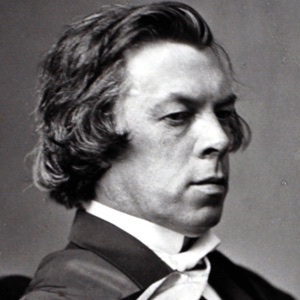
John Caird (1820 – 1898) was a Scottish theologian and minister. He graduated from the University of Glasgow in 1845. In 1862 he became Professor of Divinity at the university, and in 1873 he was appointed Principal there, a post he held for over 25 years. His written works include An Introduction to the Philosophy of Religion (1880), and Spinoza (1888).

Quotes by John Caird…
For whilst in one sense we give up self to live the universal and absolute life of reason, yet that to which we thus surrender ourselves is in reality our truer self. The life of absolute truth or reason is not a life that is foreign to us. In yielding to it we are not submitting to an outward and arbitrary law or to an external authority, but to a law that has become our own law, an authority which has become enthroned in the inmost essence of our being.
The very emergence of the contradiction in our consciousness is at the same time the silent prophecy of its solution… that which knows or feels division or discord must be a unity which transcends division or discord… it is a consciousness in which the contradiction or discord vanishes.
We have in us the power to transcend the bounds of our narrow individuality, and to find ourselves in that which seems to lie beyond us.
Morality or the moral life may be described as that solution of the contradiction between man’s higher and lower nature which is accomplished by the transformation of the lower into the organ or expression of the higher.
It is the endeavor by the constant exercise of spiritual activity, to appropriate that infinite inheritance of which we are already in possession.
That which I know immediately and intuitively transcends in certitude all other knowledge, for the certainty of it is bound up with the mind’s certainty of itself. I can no more doubt what I thus know than I can doubt my own existence.
Carry religious principles into common life… Soon business, with all its cares and anxieties, the whole “unprofitable stir and fever of the world” will be to us a thing of the past.
There is provided an escape from the narrowness and poverty of the individual life, and the possibility of a life which is other and larger than our own, and yet which is most truly our own. For, to be ourselves, we must be more than ourselves. What we call love is, in truth… the losing of our individual selves to gain a larger self.
When we begin at the real beginning — when thought starts where alone it legitimately can start — it is forced onwards, from step to step, by an irresistible inward necessity, and cannot stop short till it has found its goal in the sphere of universal and absolute truth, or in that Infinite Mind which is at once the beginning and the end, the source and the final explanation of all thought and being.
The conscious self is that which remains constant in its pure universality through all particular, changeful experiences.
